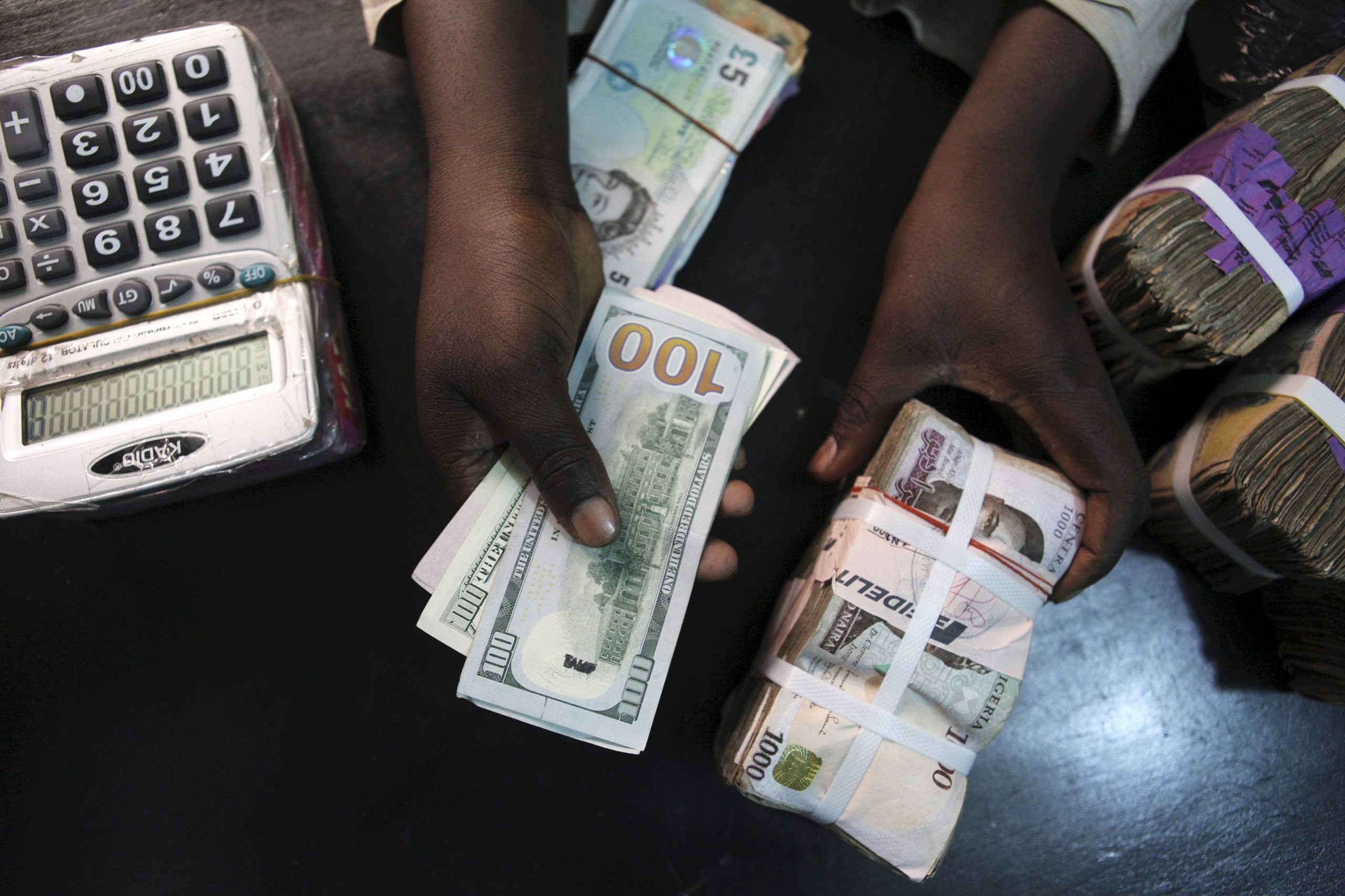Companies participating in the Central Bank of Nigeria (CBN) RT 200 program have found a way to circumvent the initiative to sell forex in the official market but at black market rates, National Daily has gathered.
Recall that the CBN in order to participate in the market, had in February launched the RT 200 program which offers companies who repatriate their forex for third-party usage an additional incentive of N65 for every dollar repatriated while those who sell for their own usage get N35 for every dollar sold.
According to findings, companies repatriate the forex into the official Investor and Exporter window, collect their incentive but still end up collecting the differential between the official and black market rates outside of the window.
Nigeria’s exchange rate has depreciated by over 25% in the last one year as a slew of CBN policies fail to bridge the gap between the parallel and official exchange rates.
READ ALSO: CBN moves to save aviation sector from total collapse, releases $265m
When the CBN introduced the RT 200 policy in February this year, the exchange rate was N580/$1. About nine months down the line, the exchange rate has depreciated to N710/$1.
Companies have resorted to the black market or at least paying the black-market rates because of the spate of scarcity.
According to several sources who asked not to be named for fear of being victimized, suggest that the companies paying above the official rate, are more comfortable buying in the I&E window due to the authenticity of the source of inflow even if it means paying an extra spread.
It often starts with a bid from a company sourcing forex via their banks on official channels such as the I&E Window. Once the bid is received, a seller on the other side that can match the forex is contacted by their own bank.
The exchange rate on the official market is then used as the price of the transaction for official purposes.
READ ALSO: CBN approves reward scheme for users of eNaira
The difference between this price and the black-market exchange rate is then used to sell off market by the representative banks of both the buyer and seller respectively.
According to a source, “for you to be on the list, the exporter or seller of the forex needs you to have settled the difference (black market less the official rate) off market at the black market into a designated account for the buyer to get on the list then get matched with as the buyer that the exporter will sell to via the window.”
It was gathered that this practice is widespread and is seen as an acceptable way to comply with CBN guidelines but still sell at parallel market rates which many still consider the closest reflection of reality.
According to one trader, “It will be foolhardy for anyone CFO not to take the spread between the official and black-market rate. This is not about corporate governance; it is doing what is best for your business”
Sources suggest companies who sell, classify the spread as other income in their financial statements while those who buy, classify it as part of its exchange rate losses or other expenses.

 Entertainment1 week ago
Entertainment1 week ago
 Entertainment5 days ago
Entertainment5 days ago
 Comments and Issues1 week ago
Comments and Issues1 week ago
 Comments and Issues1 week ago
Comments and Issues1 week ago
 Business1 week ago
Business1 week ago
 Comments and Issues1 week ago
Comments and Issues1 week ago
 Health6 days ago
Health6 days ago
 Health3 days ago
Health3 days ago

